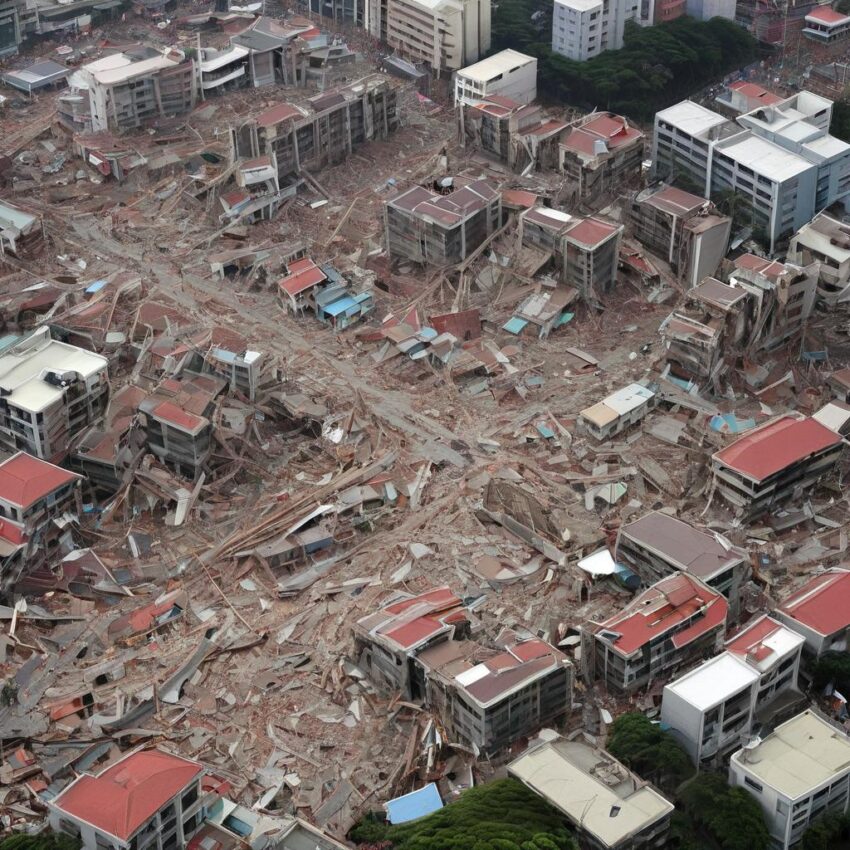Wednesday, April 3, 2024

Taiwan was struck by the most powerful earthquake it has seen in 25 years, causing widespread alarm across the self-ruled island as well as in Japan and the Philippines with the issuance of tsunami warnings. Fortunately, these warnings were lifted as the threat receded without leading to significant damage or loss of life.
The recent earthquake in Taiwan has sent tremors through the travel industry, raising concerns about immediate impacts and future travel plans to the region. As authorities assess the damage and work on recovery efforts, many travelers and companies are reevaluating their itineraries and policies. The seismic event not only disrupts local transportation and infrastructure but also affects the broader perception of safety among potential tourists. Industry stakeholders, from hoteliers to tour operators, are closely monitoring the situation, offering support and flexible options to those affected. The resilience of Taiwan’s travel sector is being tested, yet the community’s strong response highlights its commitment to rapid recovery and continued safety for visitors.
The seismic activity, occurring on Wednesday, was forceful enough to unseat buildings from their foundations and provoke a landslide in Taiwan’s eastern regions. Hualien, an eastern city, witnessed the collapse of numerous structures, marking a moment of crisis for the area.
Emergency services, including fire authorities, reported one fatality due to falling rocks in the mountainous vicinity outside Hualien, with an approximate 50 individuals sustaining injuries. Taipei, the capital, saw a momentary pause in its subway services as the populace took precautionary measures. The quake’s force was evident as it dislodged tiles from older edifices and overturned furniture.
Taipei felt the aftermath with a series of aftershocks that persisted, suggesting the potential for continued seismic disturbances over the following days. Wu Chien-fu, head of Taipei’s Seismology Centre, described the quake, with an estimated magnitude between 7.2 and 7.7 on the Richter scale, as the most significant since the devastating 1999 earthquake that claimed 2,400 lives. He noted the quake’s widespread impact, reaching across Taiwan and affecting offshore islands as well.
Interestingly, Taiwan’s earthquake alert system, known for its capability to provide advance warnings, failed to activate before the tremor struck, raising concerns about the system’s effectiveness in this instance.
The Pacific Tsunami Warning Center, based in Hawaii, along with the Japan Meteorological Agency (JMA), and the Philippines’s seismology agency, initially issued tsunami warnings, heightening the alert across the region. However, these were subsequently retracted as the tsunami threat passed. The JMA had advised evacuations in parts of Japan, predicting waves up to 3 meters high, but later reports confirmed that the impact was less severe than anticipated, with a wave of approximately 30cm detected on Yonaguni Island. Flight operations in Okinawa’s main airport were also temporarily halted following the alert.
This incident underscores the unpredictable nature of natural disasters and the importance of robust warning systems to mitigate their impact. Despite the lack of severe damage or a high casualty rate, the earthquake serves as a reminder of the inherent vulnerabilities faced by regions situated along major fault lines. It highlights the need for ongoing vigilance and preparedness in the face of natural calamities.
Monday, April 29, 2024
Monday, April 29, 2024
Tuesday, April 30, 2024
Monday, April 29, 2024